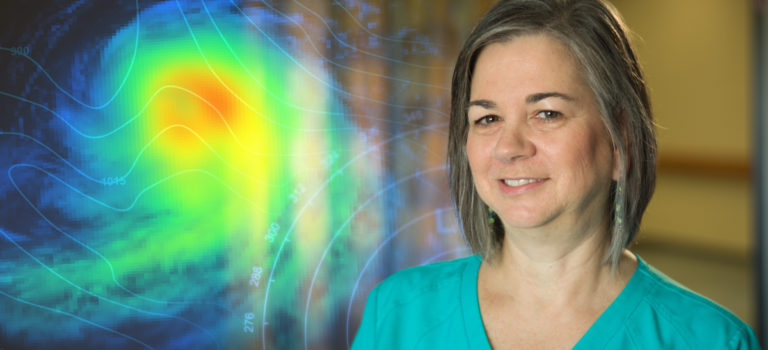Natural disasters, like hurricanes, often hit hard. Strong winds and heavy precipitation can wreak havoc on our communities, causing power to go out, roads to close, streets to flood and food and water to be in short supply. During a disaster, cancer patients need to be most concerned with their well-being, especially if they become displaced and cannot follow their usual routines. Cancer patients, particularly those undergoing treatment, can have weakened immune systems and may be at higher risk for infections, extreme fatigue and injury. When skies are clear, it may feel like there are too many other things to do to prepare in advance, but when storm clouds loom, it will have been time well spent.
Robin Maggio, an Oncology Social Worker at Woman’s Hospital, says every patient should be prepared and have a plan. “When we get nervous about something, such as a hurricane or other storm approaching, it is hard to think clearly. Having a plan in place, written out and shared with family members is your best strategy to combat this,” she says.
To prepare, Robin offers the following advice:
Keep Records: Cancer patients should keep good records of their cancer journey, including information about their diagnosis, cancer stage, treatments, medications and prescriptions and contact information for doctors and caregivers. “While we live in a digital age, having written documentation is extremely important due to power and service limitations,” Robin says. “Keep these documents in a plastic, water safe bag.”
Medications: Prior to a storm, patients should make sure they not only have necessary cancer treatment medications, but also those that treat side effects, like pain, nausea, vomiting or diarrhea. It is also a good idea to talk to your doctor regarding medications that don’t need to be refrigerated.
Food & Water: “Stocking up on non-perishable food and drinking water is important for anyone, but cancer patients especially,” says Robin. Side effects of some treatments include suppressed appetite and dehydration; as a result, those affected by cancer should be sure to stock up on high-protein snacks and drinks that help restore electrolytes. A good rule of thumb is one gallon per person per day of water for drinking and sanitation purposes. When stocking up on food, a three-day supply is typically advised.
Treatment Plans: If a storm is approaching, it is suggested that you consult with your oncologist on a plan to stay on the current treatment schedule. If you’re planning to evacuate, your doctor may be able to assist you find a facility that can continue your treatment while you’re gone. Robin says, “When evacuating, be sure to bring medicines in the original, labeled bottle, written treatment plans and doctor’s contact information, that way you will have accurate information for any new healthcare providers.”
Infection Risks: Following a natural disaster, there are many risks for infection that can threaten a patient’s already compromised immune system. “It’s important that a patient becomes aware of their risk and takes the necessary steps to ensure their safety,” Robin says. “Try to get as much rest and sleep as possible. Make sure you’re eating and drinking. And have precautions available should the need arise.” Put together a kit that includes clean dressings, bandages, antiseptics, medications and a thermometer. Keep the supplies in a water safe container. For more advice, visit Ready.gov for tips on putting together a kit.
“Being prepared with a plan helps to alleviate some worry and assures your family members that you are taking good care of yourself,” Robin adds. For more information regarding hurricane readiness, click here. To speak to a social worker or navigator about your concerns, contact 225-924-8485.

